
views
Treating Fresh Coffee Spills
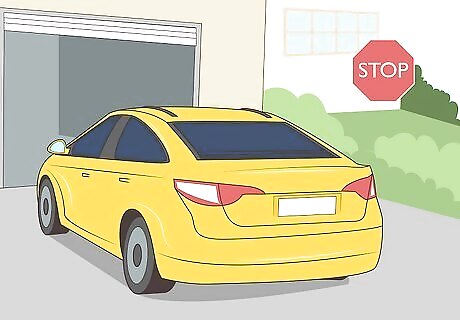
Pull over if you’re driving to treat spills safely. Make sure you are pulled over to a safe side of the road, a parking lot, or your final destination before treating a spill that has occurred. Never try to deal with a stain while driving. Note that while it’s easiest to treat stains as soon as possible, by no means do you need to risk safety to address the spill while driving. It can wait till you reach your destination.
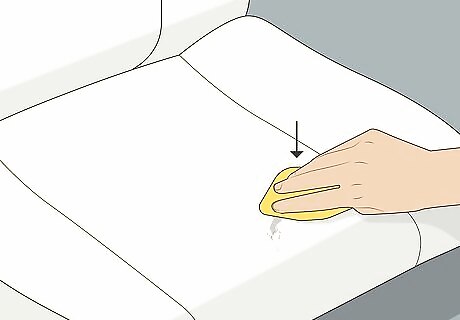
Soak up excess liquid with a cloth. Use a paper towel, a napkin, or any spare fabric or rag you have on hand in the car to clean the spill when it is safe to do so. Gently blot the coffee spill to absorb as much of the moisture from the car seat fabric as you can. Make sure the fabric or rag you use is clean to avoid worsening the stain. Don’t rub at the stain with your napkin or cloth, as this can spread the stain further. Simply press with the cloth into the seat and lift straight up to absorb the moisture. Repeat blotting with new napkins or cloths if you have them and the material becomes saturated. Do this until you have as much of the liquid absorbed as possible.
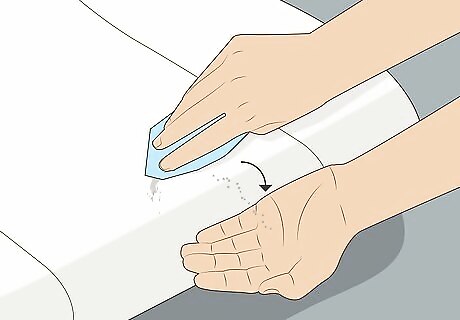
Brush off any solid material. Remove any coffee grounds that may have been present in your spilled coffee. It’s important to remove grounds so they don’t get stuck in crevices or cause further stains. Be sure to wait till after you’ve blotted the liquid of the stain up to remove any solids. Then you can simply brush them away into your hand or a napkin to dispose. If coffee grounds have made their way into fabric creases already and are difficult to remove, do your best to blot and brush at them, then wait till you have access to a vacuum with a thin hose attachment to suck them up.
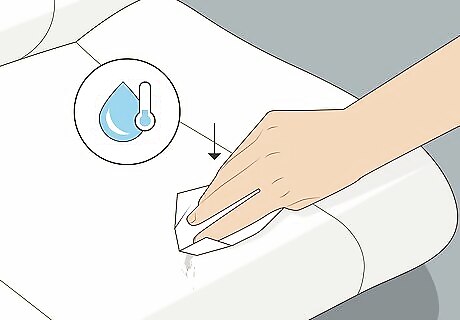
Apply cool water to the stain. Put cool water on the coffee spill as soon as you can after blotting it initially. Continue blotting with a clean cloth or paper towel to pull out more of the coffee from the fabric. Blot the water with a dry cloth or paper towel again to remove the moisture. If the stains appear to be stubborn, gently wipe the discoloration with a cool water-vinegar solution, avoiding spreading the stain by working from the outside in.
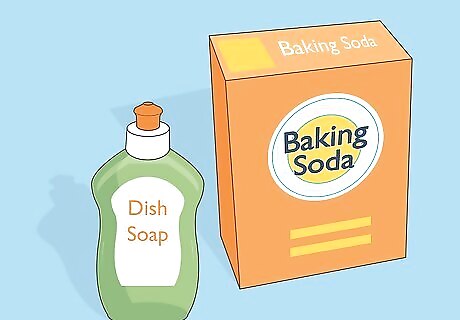
Add dish soap or baking soda if you can. If you have access to either dishwashing liquid or baking soda, use this to quickly treat a stain. Add a very small amount with cool water directly to the stain or to a cloth or napkin. Blot gently with your napkin or rag until the baking soda makes a paste or the dish soap makes a gentle lather on the surface of the stain. Leave baking soda on the stain for up to 30 minutes if you can to allow it to work into the stain. Use a new cloth or paper towel with just cool water to rinse the car seat fabric of the soap or baking soda. Continue to use just gentle blotting motions.
Cleaning Coffee Stains on Cloth Car Seats
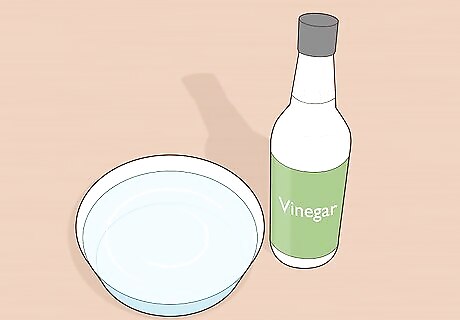
Use a mix of vinegar and water. Mix a cup of white vinegar into a gallon of water, or a similar ratio for a smaller quantity. Add a small squirt of dish soap and apply to the area of the coffee stain. Work the solution into the car seat stain with a stiff-bristled brush. Then allow it to sit for about 30 minutes before rinsing with water and blotting dry. You can also add club soda to your mixture for another ingredient that can help to pull the coffee stain out.
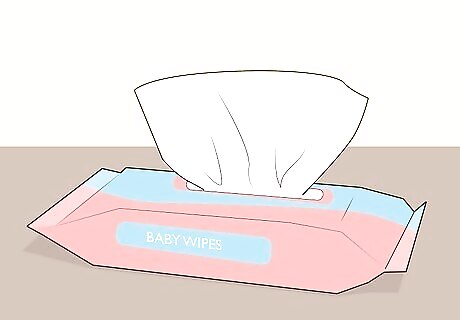
Use baby wipes or dry cleaning cloths. Use standard unscented baby wipes or dry cleaning cloths meant for clothing to remove a coffee stain. Keep these items in your car for a quick way to clean stains on the go. Use this method when you will be unable to do a deeper clean with soap and water, as these items can be kept on hand in your car. Baby wipes have the added benefit of being unscented and gentle for people sensitive or allergic to the strong scent or chemicals in other cleaners.
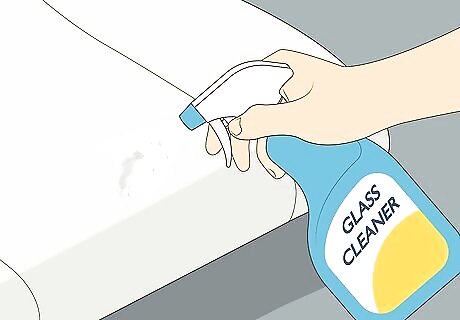
Try using glass cleaner. Spray a standard glass cleaner on a coffee stain that hasn’t come out even after other cleaning methods. This may help to further break up a stubborn stain for removal. Be sure to test a glass cleaner on a small, inconspicuous area of your car upholstery to determine the effect it will have on your fabric. Don’t use it on the stained area if it appears to alter the appearance of the material. Saturate the stain with the spray cleaner, then leave on for five minutes before blotting dry.
Cleaning Coffee Stains on Leather or Vinyl Car Seats
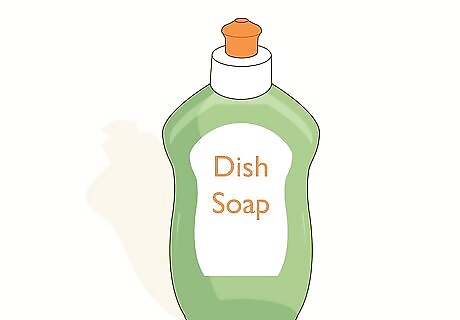
Use only low or neutral pH detergent on leather. Use a mild dish soap in cool water to blot at stains on leather. Or use a cleaner specifically intended for leather instead. Try stirring dish soap and water together vigorously until suds is formed. Then dab just the suds onto the coffee stain to avoid over-saturating the leather, and wipe clean with a dry cloth. Don’t use a brush to work cleaner into leather fabric, as it can wear down the leather or work the cleaner into the seams and underlying cushion.
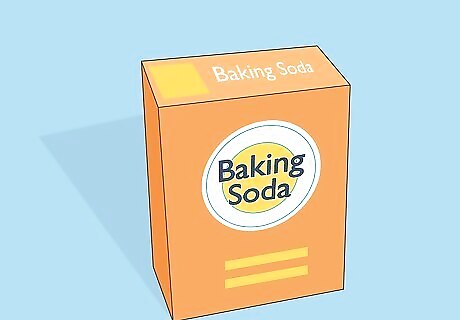
Use baking soda on vinyl. Add water to baking soda to apply to a coffee stain on vinyl car seats. Work it in very gently with a toothbrush or a larger soft brush, then blot dry with a clean cloth. Avoid using cleaners with an oil or mineral base on vinyl, as these can make vinyl harden and crack or feel stiff.
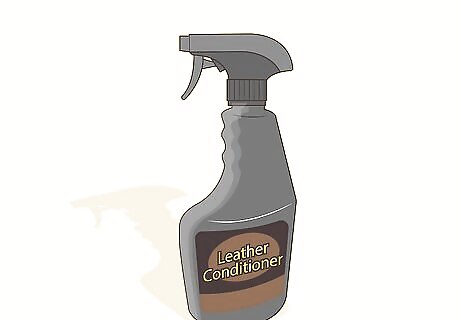
Finish with a protectant made for the material. Condition sensitive fabrics like vinyl and leather after cleaning a stain. This is necessary to prevent drying and cracking that can result from the cleaner chemicals or scrubbing action. Find these conditioners in stores with auto supplies, or in cleaning supplies meant for upholstery. Many solutions meant to condition leather and vinyl will also help to prevent or lessen the severity of future stains, so it’s an important step not to be skipped in the cleaning process.




















Comments
0 comment